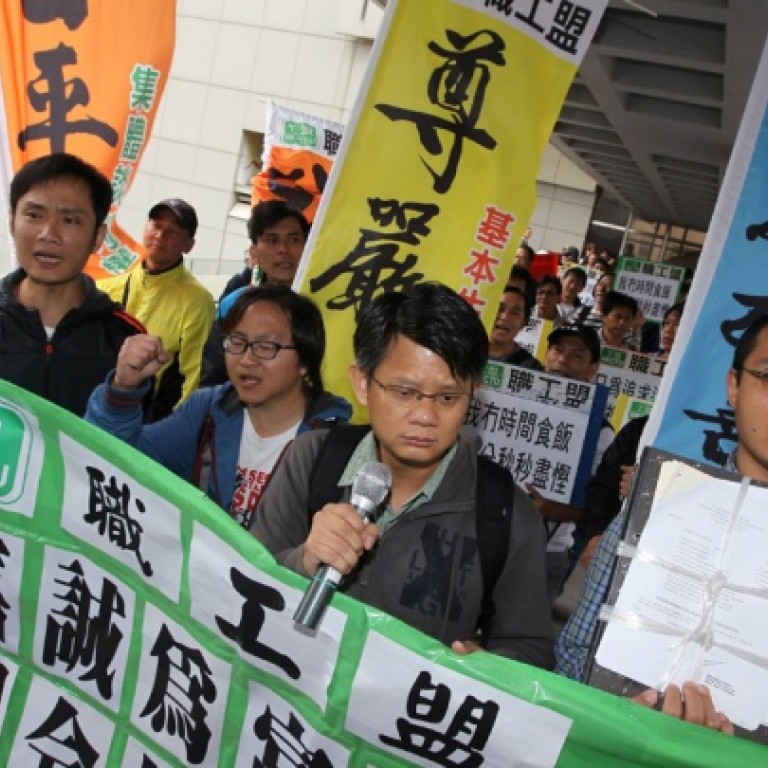
Subcontracting is not immoral
I refer to Tony Yuen's letter ("Bosses' greed the real villain in strike fallout", May 18). Mr Yuen said that the Hong Kong's logistics industry has weakened over the past two decades as a result of rising terminal operating costs and the "raised terminal charges" by the terminal operators.
I refer to Tony Yuen's letter ("Bosses' greed the real villain in strike fallout", May 18).
Mr Yuen said that the Hong Kong's logistics industry has weakened over the past two decades as a result of rising terminal operating costs and the "raised terminal charges" by the terminal operators.
I presume the charges that Mr Yuen is referring to are the terminal handling charges, however, these are levied on the shippers by the shipping lines, not by the container terminals. These charges are not collected by the container terminals nor do the terminals levy charges on importers or exporters.
The container handling charge is what the terminal operators charge the shipping lines and, in fact, over the past decade, the average container handling charge per teu (20-foot equivalent unit, which is the common measurement used by the shipping industry) has dropped by about 35 per cent at some terminals.
The container handling charge is only one of the many components of the terminal handling charges, which also include a number of other charges levied on the shippers by the shipping lines.
Confusion arises because the shipping lines call the charges "terminal handling charges", which would explain the confusion on the part of Mr Yuen, even though he spent his career in this sector. As the terminal handling charge is a commercial arrangement between shipping lines and shippers, terminal operators have no control over the charges, nor do they receive any financial benefit when these charges are increased.
Mr Yuen also singles out the subcontracting of workers as an "immoral" business practice. The use of external contractors is a common international practice and has been a part of operations at some terminals since day one.
Indeed it is also a common practice among many other industries and is almost an inevitable sector of our economy.
The terminal operators in Hong Kong maintain a basic workforce to support operations and use external contractors to cope with the volatile nature of transshipment cargo, which now accounts for approximately 70 per cent of the Hong Kong port's business. Transshipment cargo is that which enters the port on a vessel from elsewhere, mostly in Asia, and is moved to a larger ocean-going vessel for its eventual destinations in the US, Europe or even other ports in Asia.
The contracting system has allowed, among other things, the port of Hong Kong to stay competitive with other regional ports while offering a flexible, efficient and reliable service.
